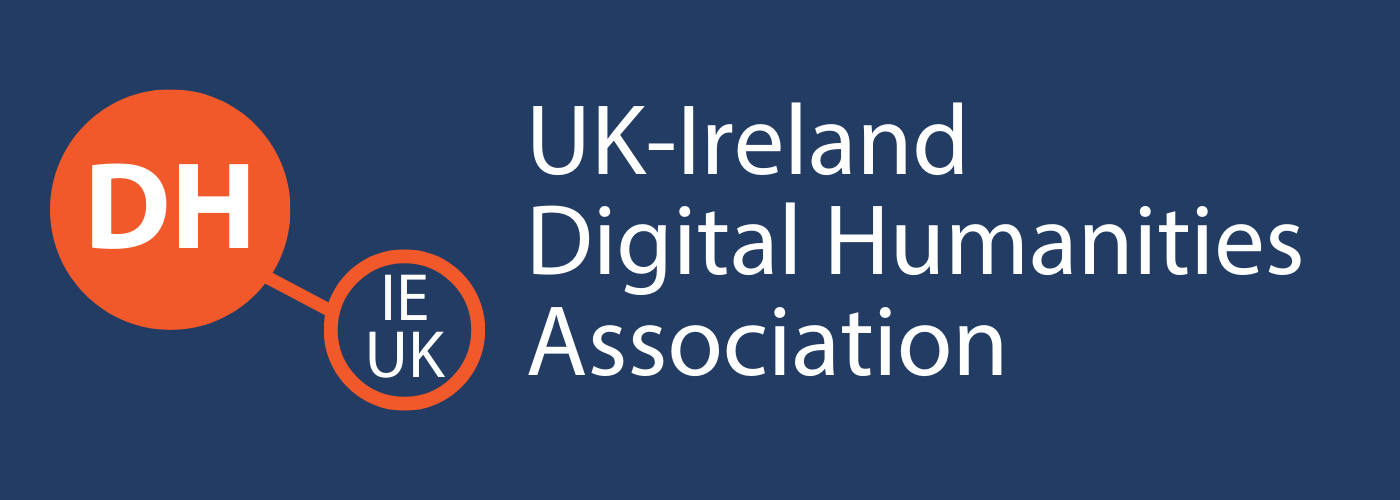Updates on Governance Working Group & Community Feedback
In line with its published roadmap, the UK-Ireland Digital Humanities Association aims to establish a formal governance structure during its second year of operation. To that end, a call for participants was circulated and a Governance Working Group was convened in November 2023. In keeping with the democratic nature of the group and the wider association, the chair and note taker are rotated for each meeting. Secretariat support is provided by the School of Advanced Study, University of London.
The working group has been tasked with developing a draft plan for the Association’s governance, membership and elections. Since its kick-off meeting in December 2023, the group has met at least once a month to develop a draft proposal and to contribute to the community consultation process.
Following the winter break, the group met to discuss its priorities and to develop a detailed work plan for the research portion of its work. One of our first tasks was to collate a list of organisations that serve as potential models for the UK-Ireland Digital Humanities Association. Having agreed on a number of key categories for comparison across these organisations including “membership”, “elections” and “financial/legal considerations”, each working group member was charged with investigating two organisations and reporting back to the next meeting to be held in February.
The first stage of the planned community consultation took place during the Association’s Annual Event in June 2024. This feedback from the session — which is described in more detail below — is now being considered and developed alongside a follow-up survey, in order to refine the key priorities for the Governance structure being drafted.
Based on detailed discussions, the group concluded that there were three potential paths to establishing a governance structure for the Association:
- A ‘straight to membership’ approach that proposed an institutional members only model;
- A ‘straight to membership’ approach that proposed an individual members only model;
- A ‘governance first, membership later’ approach that proposed that the establishment of a membership model should be separate from the establishment of the governance structures.
It became clear from very early in the group’s work that transparency and clarity on membership benefits would be vital for the implementation of the first and second approaches. There was some discussion as to what extent the UK-Ireland Digital Humanities communities should be involved in shaping and defining the membership model. Therefore, the third option was proposed as an interim arrangement, allowing for the establishment of the Association’s governance structure whilst consulting with the wider community about their needs.
As a next step, three members of the working group developed a description of each of the three proposed approaches in the context of the UK-Ireland Digital Humanities Association. During the group’s next meeting in March, the ‘governance first, membership later’ approach came to the fore as the preferred model. For our April meeting we decided to refine this model further, proposing two potential governance structures which are a blend of the ‘governance first, membership later’ and the two membership model types, i.e. ‘governance first, institutional membership later’ and ‘governance first, individual membership later’. To produce these new drafts, we split into two smaller groups, each with responsibility for creating a new draft.
Our May meeting focused on refining these models further, identifying any risks or challenges as well as any areas that would benefit from input from the community during the upcoming workshop.
As part of the Association’s 2024 Annual Event, a workshop was held to consult members on the key priorities driving this process. Led by members of the Governance Working Group, this workshop addressed three main areas: membership models, governance structures (particularly, ensuring representation across the DH community within this), and the balance between member benefits and fee levels. In particular, transparency of Governance; inclusivity and opportunity for early career, precarious colleagues, and those working outside of HE; parity between nations; and the importance of grass-roots involvement all emerged as significant priorities, reinforcing and underscoring the values that guide the Association. There was also much enthusiasm for an outward-looking and connected Association that had strong relationships with peer organisations such as ADHO, DARIAH and other regional DH organisations like DH Benelux.
In the two meetings that have been held since the workshop, work has focused on incorporating the feedback into a survey. The digital humanities is an incredibly diverse community, and we are excited to hear from people doing digital humanities, including academia, the creative industries, heritage sector and education. The survey is open until Friday 18 October.
Survey: https://forms.office.com/e/aqeQhtP9Ni
Upon completion of the community consultation, the working group will incorporate the feedback into a final governance proposal which will be presented to the Association Collective for review.
The Governance Working Group are grateful for the rigorous and thoughtful contributions of all those who attended the workshop, to the Association’s Collective for their advice, and to the staff at the School of Advanced Study, University of London for their support.
